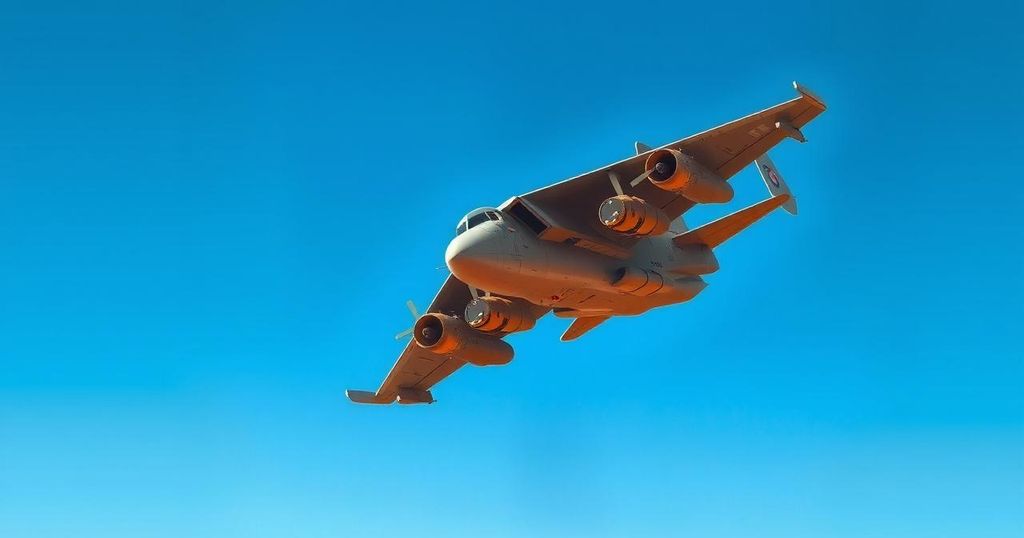Global news
AFRICA, AIRSTRIKES, ASIA, CONFLICT, CUBA, DONALD TRUMP, EGYPT, FLORIDA, FOX NEWS, GAZA, GAZA STRIP, HAMAS, HEGSETH, HEZBOLLAH, IRAN, ISRAEL, MAR - A - LAGO, MICHAEL WALTZ, MIDDLE EAST, MIDDLE EAST CONFLICT, MILITARY OPERATIONS, NORTH AMERICA, PALM BEACH, PETE HEGSETH, RED SEA, SHA, TRUMP, TRUMP INTERNATIONAL GOLF CLUB, UNITED STATES, US, WHITE HOUSE, YEMEN
Leila Ramsay
0 Comments
US Airstrikes Against Houthis in Yemen to Continue Indefinitely
US airstrikes against Yemen’s Houthis will continue indefinitely post-initial strikes that killed 31 and injured 100. Designed to deter attacks on shipping, this marks Trump’s first military action in the region. Officials emphasize a firmer U.S. stance against Iran, while the Houthis and Iran threaten escalation in response to U.S. actions.
United States officials have declared that airstrikes against the Iran-backed Houthis in Yemen will persist indefinitely. These strikes, initiated on Saturday, resulted in significant casualties, killing at least 31 individuals and injuring around 100 others. The objective of these military actions is to penalize the Houthis for their attacks on maritime shipping in the Red Sea, marking President Donald Trump’s first military engagement in the region since his inauguration in January.
Secretary of Defense Pete Hegseth asserted on Fox News that the airstrikes will continue until the Houthis cease their attacks on ships and drones. He emphasized a shift in U.S. policy towards a more assertive stance against Iran and its allies in the Middle East. National Security Adviser Michael Waltz indicated that the strikes aimed at neutralizing key Houthi leaders with overwhelming force, signaling to Iran that tolerance for their actions has reached its limit.
President Trump utilized his Truth Social platform to address the Houthis directly, declaring, “YOUR TIME IS UP, AND YOUR ATTACKS MUST STOP, STARTING TODAY.” He also directed similar statements towards Iran, demanding an immediate termination of support for the Houthis. Trump was reported to have monitored the airstrikes from Florida, generating significant media attention.
The Houthis, who have exerted control over most of Yemen for the last ten years, stated their actions against international shipping were in solidarity with Palestinians amidst the ongoing Gaza conflict. They have also reported launching missiles and drones towards Israel. Israeli officials are investigating reports of a missile fired from Yemen that landed near Sharm el-Sheikh in Egypt, trying to ascertain if it was aimed at Israel.
In response to U.S. threats, Maj Gen Hossein Salami, of Iran’s Revolutionary Guards, conveyed that the Houthis operate independently, making their strategic decisions. He issued a warning that any U.S. actions would invoke a decisive response from Iran. Meanwhile, Iranian officials condemned the airstrikes as violations of international law and warned the U.S. against interfering with Iran’s foreign policy.
The U.S. military’s Central Command characterized the strikes as the commencement of a broader operation in Yemen, utilizing aircraft from the Harry S. Truman aircraft carrier. Pentagon officials suggested that these military actions might extend over several weeks. The Houthis have been regarded as pivotal players within Iran’s “axis of resistance,” a coalition of militant groups aimed at countering Israeli influence.
Reports indicate that the majority of casualties resulted in women and children, as per Houthi health ministry spokesperson Anees al-Asbahi. The Houthi political bureau described the airstrikes as a “war crime,” asserting their readiness to respond to further escalations. Local residents recounted the violence of the strikes, which significantly impacted nearby neighborhoods. Recovery efforts in Sana’a revealed considerable destruction, with injured individuals, including children, receiving urgent medical attention.
The previous Biden administration focused on countering the Houthis’ capabilities but had limited the extent of U.S. military involvement. Recently, the Houthis signaled a resumption of attacks on Israeli vessels, concluding a period of relative quiet since the Gaza ceasefire. Overall, the Pentagon noted that the Houthis have launched numerous attacks on U.S. and commercial ships since the beginning of 2023, highlighting the ongoing tensions in the region.
In summary, the United States has initiated a series of airstrikes against the Houthis in Yemen, declaring an indefinite continuation of this military campaign. The strikes aim to deter Houthis from attacking international shipping, signaling a more assertive U.S. stance towards Iran. Amidst this escalation, both the Houthis and Iranian officials have issued warnings, while regional tensions remain high, especially with respect to Israel. The conflict illustrates a complex interplay of power, regional alliances, and consequences for civilians caught in the crossfire.
Original Source: www.theguardian.com




Post Comment